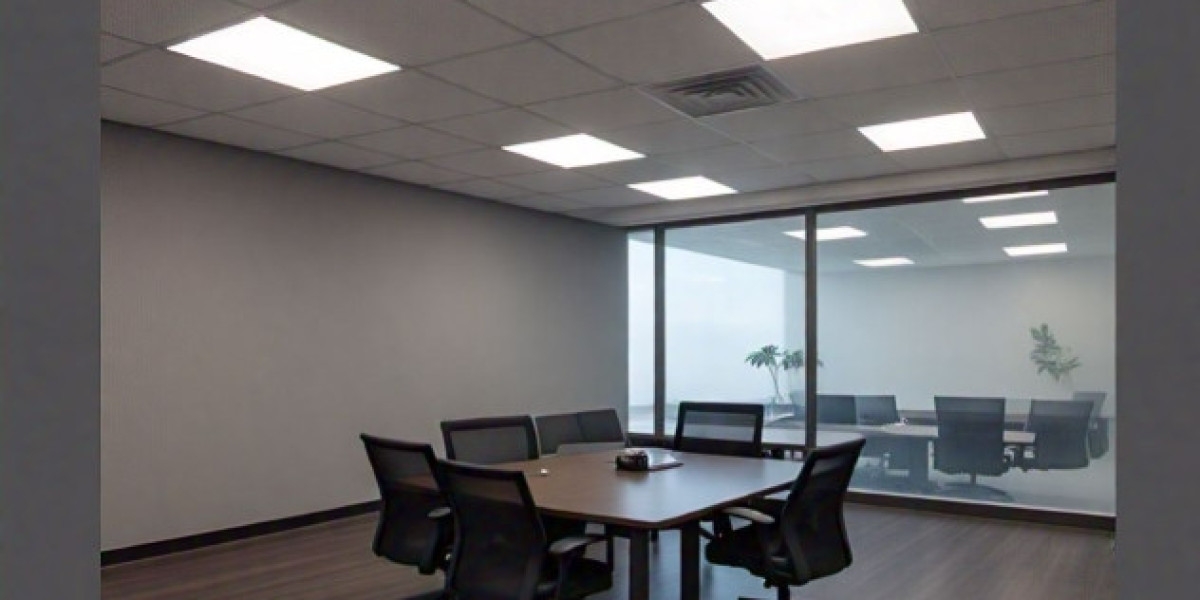The evolution of workplace culture and the dynamic demands of modern businesses have brought about significant changes in the way office spaces are utilized. In Doha, the rise of coworking spaces presents a flexible alternative to traditional office rentals. This comparison sheds light on how these two models cater to different business needs, their benefits, limitations, and overall impact on companies operating in Doha.
Flexibility and Commitment
One of the most significant distinctions between coworking spaces and traditional office rentals is the level of flexibility. Coworking spaces typically offer short-term leases that can be as brief as a day, week, or month. This model appeals to startups, freelancers, and businesses that prioritize agility. For instance, entrepreneurs testing a new market in Doha might find coworking spaces ideal due to their low commitment and minimal setup requirements.
In contrast, traditional offices for rent in Doha often require long-term lease agreements, typically spanning one to three years or more. While this may not be ideal for rapidly scaling businesses, it is beneficial for established companies seeking stability and dedicated space for their operations. This commitment can also help businesses lock in rental rates, providing cost predictability.
Cost Considerations
Coworking spaces generally present a cost-effective solution for small teams and individuals. Monthly fees often include utilities, internet, maintenance, and shared amenities such as meeting rooms, coffee stations, and lounge areas. This bundled approach eliminates hidden costs, making budgeting easier for small businesses.
Traditional office rentals, on the other hand, involve higher upfront costs, including deposits, furnishing, and often separate utility and maintenance expenses. While these costs may deter smaller businesses, larger corporations may find them manageable as part of a long-term investment. Additionally, the larger square footage of traditional offices allows companies to design their workspace to align with their branding and operational needs.
Networking and Collaboration
Coworking spaces foster a collaborative environment that encourages networking and idea-sharing among tenants. Professionals from various industries work alongside each other, creating opportunities for partnerships and innovation. This setup can be especially advantageous for startups and freelancers in Doha, who may find valuable connections within the coworking community.
Traditional office rentals, by their nature, offer privacy and exclusivity but lack the inherent networking opportunities of coworking spaces. However, this privacy can be an advantage for companies that handle sensitive data or require a focused, uninterrupted work environment.
Amenities and Facilities
Coworking spaces are known for their modern amenities and vibrant design. Facilities often include ergonomic furniture, high-speed internet, conference rooms, event spaces, and even recreational areas. These features make coworking spaces appealing to younger, tech-savvy professionals who value convenience and comfort.
Traditional office rentals may offer basic amenities such as parking, security, and reception services but often require tenants to furnish and customize their spaces. While this may initially seem like a disadvantage, it allows companies to create an environment tailored to their brand identity and operational needs.
Scalability
For businesses in growth mode, scalability is a crucial factor. Coworking spaces offer unparalleled flexibility in this regard. Companies can easily add or reduce the number of desks they rent based on their current requirements. This scalability is particularly useful for startups and project-based teams in Doha that may not yet have a fixed employee count.
In contrast, traditional office rentals provide stability but are less adaptable. Expanding a team might require relocating or negotiating additional office space, which can be time-consuming and costly. However, for companies with stable headcounts, this stability is an advantage.
Branding and Professionalism
Traditional office rentals offer a clear advantage when it comes to branding. Having a dedicated space allows businesses to display their logo, design the interior according to their corporate identity, and create an environment that reflects their values. This level of personalization helps establish credibility and professionalism, which can be vital for client-facing businesses in Doha.
Coworking spaces, while modern and attractive, may lack this level of customization. Sharing spaces with other businesses may dilute a company’s brand identity. However, many coworking operators in Doha now offer private office spaces within their facilities, which provide a middle ground by combining privacy with the benefits of a coworking environment.
Location Advantage
Coworking spaces in Doha are often strategically located in business hubs, making them easily accessible and surrounded by essential services like cafes, restaurants, and public transport. This central location is a draw for professionals who prioritize convenience and accessibility.
Traditional office rentals are also available in prime locations, but their high costs may limit accessibility for smaller businesses. However, having a fixed address in a prestigious area can significantly enhance a company’s image and attract clients.
Cultural Considerations in Doha
In a city like Doha, where business culture emphasizes relationships and networking, coworking spaces provide a unique opportunity to engage with like-minded professionals. This aligns well with the city's push towards innovation and entrepreneurship, making coworking spaces a popular choice for young businesses and freelancers.
However, traditional office rentals hold an edge for established companies and international firms that require a permanent base of operations in Doha. The exclusivity and formality of a dedicated office space often align with the expectations of high-profile clients and partners in the region.
Environmental Impact
Coworking spaces are inherently more sustainable than traditional office rentals due to shared resources and facilities. The shared use of utilities and infrastructure reduces overall energy consumption and waste, making coworking an eco-friendly choice for businesses conscious of their environmental footprint.
Traditional office rentals, while less environmentally efficient, allow companies to implement their sustainability practices.
Conclusion
The choice between coworking spaces and traditional office rentals in Doha depends largely on a company’s size, nature, and objectives. On the other hand, traditional office rentals cater to established companies that prioritize stability, privacy, and branding.


